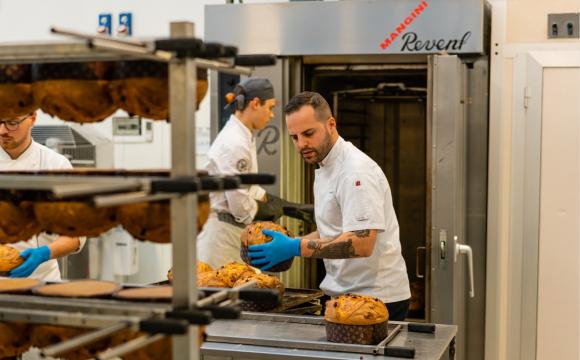
Prosecutors asked a Milan appeals court on Monday to sentence former premier Silvio Berlusconi to five years for alleged judge bribery.
The trial, which was recently resumed in the appeal stage on the orders of the Supreme Court, is connected to the 1980s sale of state food conglomerate SME.
Berlusconi was acquitted at the end of a preliminary trial in December 2004 on charges that he bribed judges to prevent SME being sold to business rival Carlo De Benedetti in 1985.
The billionaire media magnate was cleared on one count but on another, that of paying a $430,000 bribe to a Rome judge in 1991, the court applied the statute of limitations.
Prosecutor Piero De Petris, who is appealing the lower court's verdict, said on Monday that the alleged sum paid to Rome judge Renato Squillante had originally come from an account that could be traced to Berlusconi's family holding company Fininvest.
"Berlusconi was the prime mover in this business," he said before recommending that the 70-year-old opposition chief be given five years.
The state, a civil plaintiff in the case, is also seeking 1.1 million euros in damages from Berlusconi.
Prosecutors had sought before to get the SME acquittal overturned but were prevented by a controversial justice reform passed in the final months of Berlusconi's government.
The law, drawn up by MP Gaetano Pecorella - Berlusconi's attorney and former head of the House Justice Committee - and approved in February 2006, prevented appeals by the prosecution in the case of defendants acquitted at the end of a first trial.
Before the reform, Italy's three-tier justice system meant that verdicts including acquittals could automatically be appealed twice before becoming definitive.
The Milan appeals court cited the new law in April 2006 when it rejected the prosecution's retrial request for Berlusconi.
But the Constitutional Court nixed the law reform in January, saying it created inequalities between the defence and the prosecution in the trial system, leaving the latter at an "unacceptable" disadvantage.
The Supreme Court subsequently annulled the Milan appeals court April 2006 ruling and ordered it to reconsider the case.
Berlusconi has always denied wrongdoing, insisting he is the victim of a politically motivated judicial witch-hunt.
His supporters revived this argument on Monday.
Sandro Bondi, the coordinator of Berlusconi's Forza Italia party, said that "I urge the head of state and the country's democratic institutions to acknowledge this unbelievable, incessant, decade-long politico-judicial persecution".
Berlusconi's former attorney and one-time defence minister, lawmaker Cesare Previti, was twice sentenced to five years in the same SME trial.
But the Supreme Court overturned the convictions in a surprise ruling last November, saying that for technical reasons, the trial should have been held in Perugia and not Milan.
BERLUSCONI ON TRIAL IN SEPARATE CASES.
Berlusconi is currently on trial in two other corruption cases, both involving British corporate lawyer David Mills, the estranged husband of Britain's Culture Secretary Tessa Jowell.
The first trial, which began in November, centres on alleged fraud at Berlusconi's private TV network company Mediaset.
The case stems from Mediaset's purchase of TV rights for US films up until 1999 through two offshore firms.
Prosecutors believe the purchase costs of US films were artificially inflated for tax evasion purposes.
In the second trial, which began earlier this month, Mills is accused of accepting $600,000 from Berlusconi as payment for not revealing details of Berlusconi's media empire in two trials against the ex-premier in 1997 and 1998.
Berlusconi and Mills deny wrongdoing.
Berlusconi, who is Italy's richest man, has been at the centre of numerous corruption investigations into his vast business empire.
He has never received a definitive guilty verdict but in some cases he has been cleared because of the statute of limitations or changes to the law introduced when his coalition was in power.












